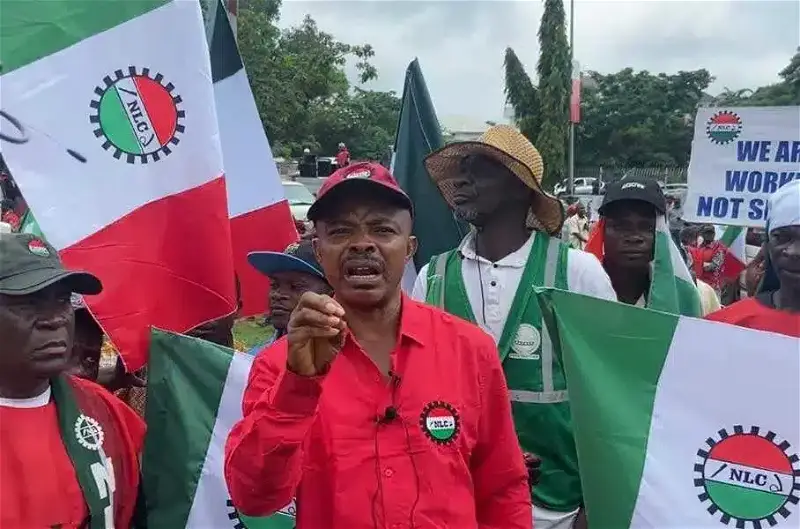Nigeria is grappling with an unprecedented economic downturn, resulting in widespread discontent and protests organized by the Nigeria Labour Congress (NLC) demanding government intervention.
The price of petrol has tripled, and the cost of rice, a staple food, has more than doubled over the past year, highlighting the severe impact on citizens’ daily lives. Despite global economic pressures, President Bola Tinubu’s policies since taking office last May have significantly contributed to the crisis.
The economy is in a dire state, with inflation nearing 30%, the highest in nearly three decades, and food inflation even higher at 35%. The government-set monthly minimum wage remains unchanged since 2019 at 30,000 naira, now equivalent to just $19, failing to keep pace with the soaring cost of living.
Many Nigerians are struggling to feed themselves, resorting to eating discarded rice or cutting back on meal portions to survive.
The economic woes are partly attributed to global inflationary pressures, but Tinubu’s decision to end the fuel subsidy and de-peg the naira from the US dollar has exacerbated the situation.
The removal of the fuel subsidy, though a significant drain on the budget, led to a sharp increase in petrol prices and, consequently, other commodities. Furthermore, the decision to float the naira resulted in its value plummeting, causing the price of imports to surge.
Financial analyst Tilewa Adebajo also points to the previous administration’s borrowing from the central bank, which printed money to cover expenses, further fuelling inflation. The naira’s devaluation has had a profound impact on the economy, with its value dropping significantly against the US dollar.
In response to the crisis, the government has taken steps such as establishing a board to regulate food prices, distributing grains from the national reserve, and working with rice producers to increase market supply.
However, these measures have faced criticism for their effectiveness and reach. Recent attempts to distribute seized bags of rice resulted in a tragic stampede in Lagos, prompting the government to halt these distributions.
Despite these challenges, the government remains committed to its policy decisions, asserting that they will strengthen the economy in the long term. Meanwhile, labor unions and citizens continue to call for immediate relief from the economic hardship, underscoring the urgent need for solutions that address both the immediate and underlying causes of Nigeria’s economic crisis.


